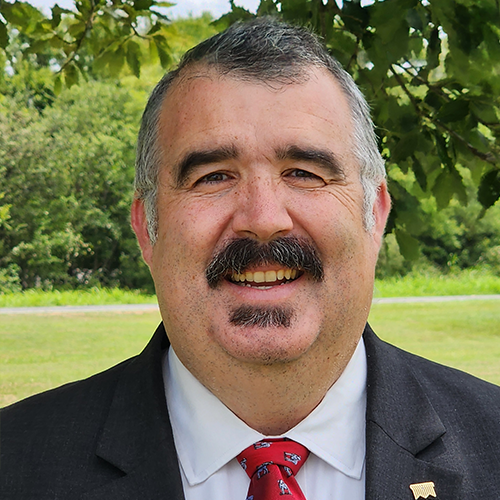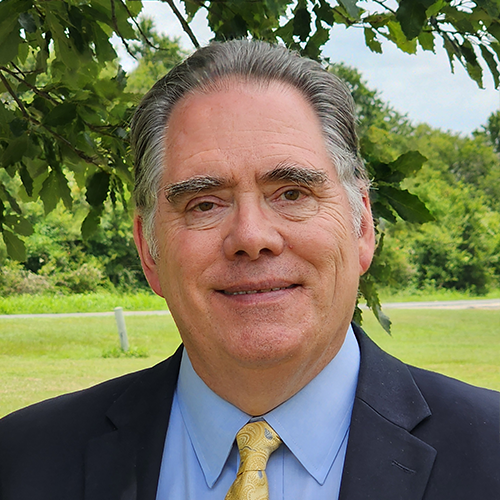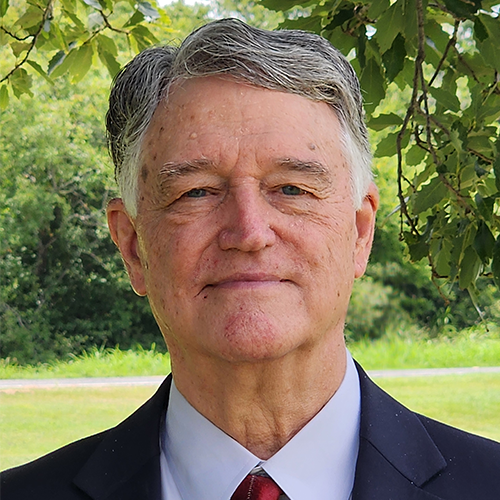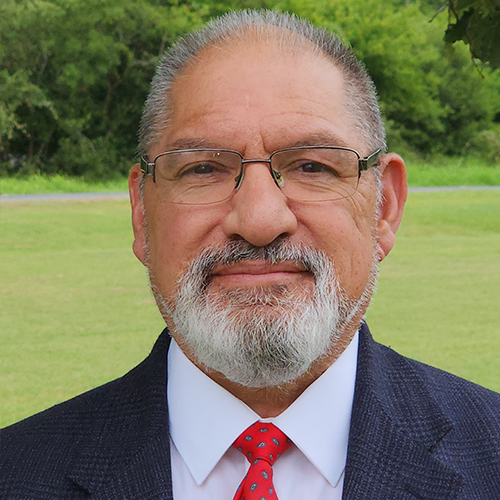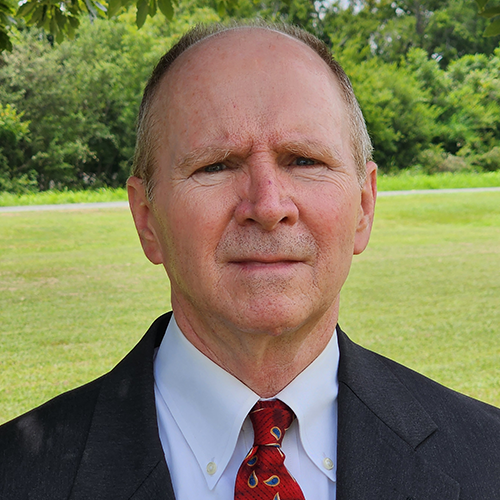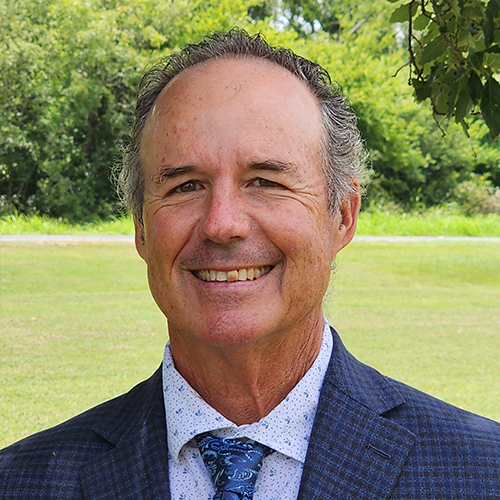Grace Community Baptist Church of Elgin
Constitution
ARTICLE I - NAME
The name of this church is Grace Community Baptist Church of Elgin.
ARTICLE II - PURPOSE
The foundation of this Church is the Lord Jesus Christ and it is guided in all its affairs by the
Word of God as recorded in both the Old and New Testaments. (1 Corinthians 3:11, Colossians
1:15-19)
The purpose of this Church shall be to glorify God. It shall glorify God by fulfilling its Godgiven
mission stated in Scripture. (Matthew 28:18-20, Mark 16:15, Luke 24:46-48, Ephesians
4:11-16)
The mission of this Church shall be to see all peoples become whole-hearted followers of Jesus
Christ by reaching unbelievers with the gospel of Christ, gathering worshipers into the body of
Christ and making disciples of Jesus Christ for the glory of God. (Matthew 28:18-20, Acts 1:8,
Ephesians 5:7-8)
The priorities of ministry of this Church shall be evident in a devotion to a common faith, a
common life, a common worship and a common witness. (Matthew 28:19, Ephesians 4:11-16;
Acts 2:42)
ARTICLE III - AFFIRMATION OF OUR FAITH
I. The Scriptures
We believe that the Holy Bible was written by men divinely inspired, and is a perfect treasure of
heavenly instruction; that it has God for its author, salvation for its end, and truth without any
mixture of error for its matter; that it reveals the principles by which God will judge us; and
therefore is, and shall remain to the end of the world, the true center of Christian union, and the
supreme standard by which all human conduct, creeds, and opinions should be tried. (2 Tim.
3:16-17; 2 Pet. 1:21; 1 Sam. 23:2; Acts 1:16; 3:21; John 10:35; Luke 16:29-31; Psa. 119:11;
Rom. 3:1-2; 2 Tim. 3:15; 1 Pet. 1:10-12; Acts 11:14; Rom. 1:16; Mark 16:16; John 5:38-39;
Prov. 30:5-6; John 17:17; Rev. 22:18-19; Rom. 3:4; Rom. 2:12; John 12:47-48; 1 Cor. 4:3-4;
Luke 10:10-16; 12:47-48; Phil. 3:16; Eph. 4:3-6; Phil. 2:1-2; 1 Cor. 1:10; 1 Pet. 4:11; 1 John 4:1;
Isa. 8:20; 1 Thess. 5:21; 2 Cor. 8:5; Acts 17:11; 1 John 4:6; Jude 3:5; Eph. 6:17; Psa. 119:59-60;
Phil. 1:9-11)
II. Of The True God
We believe that there is one, and only one, living and true God, an infinite, intelligent Spirit,
whose name is JEHOVAH, the Maker and Supreme Ruler of heaven and earth; inexpressibly
glorious in holiness, and worthy of all possible honor, confidence, and love; that in the unity of
the Godhead there are three persons, the Father, the Son, and the Holy Ghost; equal in every
divine perfection, and executing distinct but harmonious offices in the great work of redemption.
(John 4:24; Psa. 147:5; 83:18; Heb. 3:4; Rom. 1:20; Jer. 10:10; Exod. 15:11; Isa. 6:3; 1 Pet. 1:15-
16; Rev. 4:6-8; Mark 12:30; Rev. 4:11; Matt. 10:37; Jer. 2:12-13; Matt. 28:19; John 15:26; 1
Cor. 12:4-6; 1 John 5:7; John 10:30; 5:17; 14:23; 17:5, 10; Acts 5:3-4; 1 Cor. 2:10-11; Phil. 2:5-
6; Eph. 2:18; 2 Cor. 13:14; Rev. 1:4-5)
III. Of The Fall Of Man
We believe that Man was created in holiness, under the law of his Maker; but by voluntary
transgression fell from that holy and happy state; in consequence of which all mankind are now
sinners, not by constraint but choice; being by nature utterly void of that holiness required by the
law of God, positively inclined to evil; and therefore under just condemnation to eternal ruin,
without defense or excuse. (Gen. 1:27, 31; Eccl. 7:29; Acts 16:26; Gen. 2:16; Gen. 3:6-24; Rom.
5:12; Rom. 5:19; John 3:6; Psa. 51:5; Rom. 5:15-19; 8:7; Isa. 53:6; Gen. 6:12; Rom. 3:9-18; Eph.
2:1-3; Rom. 1:18, 32; 2:1-16; Gal. 3:10; Matt. 20:15; Ezek. 18:19-20; Rom. 1:20; 3:19; Gal.
3:22)
IV. Of The Way Of Salvation
We believe that the salvation of sinners is wholly of grace; through the mediatorial offices of the
Son of God; who by the appointment of the Father, freely took upon him our nature, yet without
sin; honored the divine law by his personal obedience, and by his death made a full atonement
for our sins; that having risen from the dead he is now enthroned in heaven; and uniting in his
wonderful person the tenderest sympathies with divine perfections, he is every way qualified to
be a suitable, a compassionate, and an all-sufficient Savior. (Eph. 2:5; Matt. 18:11; 1 John 4:10;
1 Cor. 3:5-7; Acts 15:11; John 3:16; 1:1-14; Heb. 4:14; 12:24; Phil. 2:6-7; Heb. 2:9, 14; 2 Cor.
5:21; Isa. 42:21; Phil. 2:8; Gal. 4:4-5; Rom. 3:21; Isa. 53:4-5; Matt. 20:28; Rom. 4:25; 3:21-26; 1
John 4:10; 2:2; 1 Cor. 15:1-3; Heb. 9:13-15; Heb. 1:8, 3; 8:1; Col. 3:1-4; Heb. 7:25; Col. 2:9;
Heb. 2:18; 7:26; Psa. 89:19; Psa. 14).
V. Of Justification
We believe that the great Gospel blessing which Christ secures to such as believe in Him is
Justification; that Justification includes the pardon of sin, and the promise of eternal life on
principles of righteousness; that it is bestowed, not in consideration of any works of
which faith His perfect righteousness is freely imputed to us of God; that it brings us into a state
of most blessed peace and favor with God, and secures every other blessing needful for time and
eternity. (John 1:16; Eph. 3:8; Acts 13:39; Isa. 3:11-12; Rom. 8:1; Rom. 5:9; Zech. 13:1; Matt.
9:6; Acts 10:43; Rom. 5:17; Titus 3:5-6; 1 Pet. 3:7; 1 John 2:25; Rom. 5:21; Rom. 4:4-5; 5:21;
6:28; Phil. 3:7-9; Rom. 5:19; 3:24-26; 4:23-25; 1 John 2:12; Rom. 5:1-3, 11; 1 Cor. 1:30-31;
Matt. 6:33; 1 Tim. 4:8).
VI. Of The Freeness Of Salvation
We believe that the blessings of salvation are made free to all by the gospel; that it is the
immediate duty of all to accept them by a cordial, penitent, and obedient faith; and that nothing
prevents the salvation of the greatest sinner on earth, but his own inherent depravity and
voluntary rejection of the gospel; which rejection involves him in an aggravated condemnation.
(Isa. 55:1; Rev. 22:17; Luke 14:17; Rom. 16:26; Mark 1:15; Rom. 1:15-17; John 5:40; Matt.
23:37; Rom. 9:32; Prov. 1:24; Acts 13:46; John 3:19; Matt. 11:20; Luke 19:27; 2 Thess. 1:8).
VII. Of Grace In Regeneration
We believe that, in order to be saved, sinners must be regenerated, or born again; that
regeneration consists in giving a holy disposition to the mind; that it is effected in a manner
above our comprehension by the power of the Holy Spirit, in connection with divine truth, so as
to secure our voluntary obedience to the gospel; and that its proper evidence appears in the holy
fruits of repentance, and faith, and newness of life. (John 3:3, 6-7; 1 Cor. 1:14; Rev. 8:7-9;
21:27; 2 Cor. 5:17; Ezek. 36:26; Deut. 30:6; Rom. 2:28-29; 5:5; 1 John 4:7; John 3:8; 1:13;
James 1:16-18; 1 Cor. 1:30; Phil. 2:13; 1 Pet. 1:22-25; 1 John 5:1; Eph. 4:20-24; Col. 3:9-11;
Eph. 5:9; Rom. 8:9; Gal. 5:16-23; Eph. 3:14-21; Matt. 3:8-10; 7:20; 1 John 5:4, 18).
VIII. Of Repentance And Faith
We believe that Repentance and Faith are sacred duties, and also inseparable graces, wrought in
our souls by the regenerating Spirit of God; whereby being deeply convinced of our guilt, danger
and helplessness, and of the way of salvation by Christ, we turn to God with unfeigned
contrition, confession, and supplication for mercy; at the same time heartily receiving the Lord
Jesus Christ as our Prophet, Priest and King, and relying on Him alone as the only and all
sufficient Savior. (Mark 1:15; Acts 11:18; Eph. 2:8; 1 John 5:1; John 16:8; Acts 2:37-38; 16:30-
31; Luke 18:13; 15:18-21; James 4:7-10; 2 Cor. 7:11; Rom. 10:12-13; Psa. 51; Rom. 10:9-11;
Acts 3:22-23: Heb. 4:14; Psa. 2:6; Heb. 1:8; 8:25; 2 Tim. 1:12).
We believe that Election is the eternal purpose of God, according to which He graciously
regenerates, sanctifies, and saves sinners; that being perfectly consistent with the free agency of
man, it comprehends all the means in connection with the end; that it is a most glorious display
excludes boasting, and promotes humility, love, prayer, praise, trust in God, and active imitation
of his free mercy; that it encourages the use of means in the highest degree; that it may be
ascertained by its effects in all who truly believe the Gospel; that it is the foundation of Christian
assurance; and that to ascertain it with regard to ourselves demands and deserves the utmost
diligence. (2 Tim. 1:8-9; Eph. 1:3-14; 1 Pet. 1:1-2; Rom. 11:5-6; John 15:15; 1 John 4:19; Hos.
12:9; 2 Thess. 2:13-14; Acts 13:48; John 10:16; Matt. 20:16; Acts 15:14; Exod. 33:18-19; Matt.
20:15; Eph. 1:11; Rom. 9:23-24: Jer. 31:3; Rom. 11:28-29; James 1:17-18; 2 Tim. 1:9; Rom.
11:32-36; 1 Cor. 4:7; 1:26-31; Rom. 3:27; 4:16; Col. 3:12; 1 Cor. 3:5-7; 15:10; 1 Pet. 5:10; Acts
1:24; 1 Thess. 2:13; 1 Pet. 2:9; Luke 18:7; John 15:16; Eph. 1:16; 1 Thess. 2:12; 2 Tim. 2:10; 1
Cor. 9:22; Rom. 8:28-30; John 6:37-40; 2 Pet. 1:10; 1 Thess. 1:4-10; Rom. 8:28-30; Isa. 42:16;
Rom. 11:29; 2 Pet. 1:10-11; Phil. 3:12; Heb. 6:11).
X. Of Sanctification
We believe that Sanctification is the process by which, according to the will of God, we are
made partakers of his holiness; that it is a progressive work; that it is begun in regeneration; and
that it is carried on in the hearts of believers by the presence and power of the Holy Spirit, the
Sealer and Comforter, in the continual use of the appointed means, especially, the word of
God, self-examination, self-denial, watchfulness and prayer. (1 Thess. 4:3; 5:23; 2 Cor. 7:1;
13:9; Eph. 1:4; Prov. 4:18; 2 Cor. 3:18; Heb. 6:1; 2 Pet. 1:5-8; Phil. 3:12-16; John 2:29; Rom.
8:5; John 3:6; Phil. 1:9-11; Eph. 1:13-14; Phil. 2:12-13; Eph. 4:11-12; 1 Pet. 2:2; 2 Pet. 3:18; 2
Cor. 13:5; Luke 11:35; 9:23; Matt. 26:41; Eph. 6:18; 4:30).
XI. Of The Perseverance Of Saints
We believe that such only are real believers as endure unto the end; that their persevering
attachment to Christ is the grand mark which distinguishes them from superficial professors; that
a special Providence watches over their welfare; and they are kept by the power of God through
faith unto salvation. (John 8:31; 1 John 2:27-28; 3:9; 5:18; 1 John 2:19; John 13:18; Matt.
13:20-21; John 6:66-69; Job 17:9; Rom. 8:28; Matt. 6:30-33; Jer. 32:40; Psa. 121:3; 91:11-12;
Phil. 1:6; 2:12-13; Jude 24-25; Heb. 1:14; 2 Kings 6:16; Heb. 13:5; 1 John 4:4).
XII. Of The Harmony Of The Law And The Gospel
We believe that the Law of God is the eternal and unchangeable rule of His moral government;
that it is holy, just, and good; and that the inability which the Scriptures ascribe to fallen men to
fulfill its precepts, arises entirely from their love of sin: to deliver them from which, and to
restore them through a Mediator to unfeigned obedience to the holy Law, is one great end of the
Gospel, and of the Means of Grace connected with the establishment of the visible church.
(Rom. 3:31; Matt. 5:17; Luke 16:17; Rom. 3:20; 4:15; Rom. 7:12, 7, 14, 22; Gal. 3:21; Psa. 119;
Rom. 8:7-8; Josh. 24:19; Jer. 13:23; John 6:44; 5:44; Rom. 8:2, 4; 10:4; 1 Tim. 1:5; Heb. 8:10;
Jude 20-21; Heb. 12:14; Matt. 16:17-18; 1 Cor. 12:28).
XIII. Of A Gospel Church
We believe that a visible church of Christ is a congregation of baptized believers, associated by
covenant in the faith and fellowship of the Gospel; observing the ordinances of Christ; governed
by His laws; and exercising the gifts, rights, and privileges invested in them by His word; that its
only scriptural officers are Bishops or Pastors, and Deacons, whose qualifications, claims, and
duties are defined in the Epistles to Timothy and Titus. (1 Cor. 1:1-13; Matt. 18:17; Acts 5:11;
8:1; 11:31; 1 Cor. 4:17; 14:23; 3 John 9; 1 Tim. 3:5; Acts 2:41-42; 2 Cor. 8:5; Acts 2:47; 1 Cor.
5:12-13; 1 Cor. 11:2; 2 Thess. 3:6; Rom. 16:17-20; 1 Cor. 11:23; Matt. 18:15-20; 1 Cor. 5:6; 2
Cor. 2:7; 1 Cor. 4:17; Matt. 28:20; John 14:15; 15:12; 1 John 4:21; John 14:21; 1 Thess. 4.2; 2
John 6; Gal. 6:2; all the Epistles; Eph. 4:7; 1 Cor. 14:12; Phil. 1:27; 1 Cor. 12:14; Phil. 1:1; Acts
14:23; 15:22; 1 Tim. 3; Titus 1).
We believe that Christian Baptism is the immersion in water of a believer, into the name of the
Father, and Son, and Holy Ghost; to show forth in a solemn and beautiful emblem, our faith in
the crucified, buried, and risen Savior, with its effect, in our death to sin and resurrection to a
, in
which the members of the church by the sacred use of bread and wine, are to commemorate
together the dying love of Christ; preceded always by solemn self-examination. (Acts 8:36-39;
Matt. 3:5-6; John 3:22-23; 4:1-2; Matt. 28:19; Mark 16:16; Acts 2:38; 8:12; 16:32-34; 18:8;
Matt. 28:19; Acts 10:47-48; Gal. 3:27-28; Rom. 6:4; Col. 2:12; 1 Pet. 3:20-21; Acts 22:16; Acts
2:41-42; Matt. 28:19-20; Acts and Epistles; 1 Cor. 11:26; Matt. 26:26-29; Mark 14:22-25; Luke
22:14-20; 1 Cor. 11:28; 5:1, 8; 10:3-32; 11:17-32; John 6:26-71).
people gather for worship and encourage one another in the faith. (Mark 2:28; Col. 2:16-17;
Acts 20:7; I Cor. 16:2; Rev. 1:10).
XVI. Of The Family
God has ordained the family as the foundational institution of human society. It is composed of
persons related to one another by marriage, blood, or adoption.
Marriage is the uniting of one man and one woman in covenant commitment for a lifetime. God
wonderfully and immutably creates each person as male or female. These two distinct,
complementary genders together reflect the image and nature of God. It is God's unique gift to
reveal the union between Christ and His church and to provide for the man and the woman in
marriage the framework for intimate companionship, the channel of sexual expression according
to biblical standards, and the means for procreation of the human race.
The husband and wife are of equal worth before God, since both are created in God's image. The
marriage relationship models the way God relates to His people. A husband is to love his wife as
Christ loved the church. He has the God-given responsibility to provide for, to protect, and to
lead his family. A wife is to submit herself graciously to the servant leadership of her husband
even as the church willingly submits to the headship of Christ. She, being in the image of God as
is her husband and thus equal to him, has the God-given responsibility to respect her husband
and to serve as his helper in managing the household and nurturing the next generation.
Children, from the moment of conception, are a blessing and heritage from the Lord. Parents are
to demonstrate to their children God's pattern for marriage. Parents are to teach their children
spiritual and moral values and to lead them, through consistent lifestyle example and loving
discipline, to make choices based on biblical truth. Children are to honor and obey their parents.
(Genesis 1:26-28; 2:15-25; 3:1-20; Exodus 20:12; Deuteronomy 6:4-9; Joshua 24:15; 1 Samuel
1:26-28; Psalms 51:5; 78:1-8; 127; 128; 139:13-16; Proverbs 1:8; 5:15-20; 6:20-22;
12:4; 13:24; 14:1; 17:6; 18:22; 22:6,15; 23:13-14; 24:3; 29:15,17; 31:10-31; Ecclesiastes 4:9-
12; 9:9; Malachi 2:14-16; Matthew 5:31-32; 18:2-5; 19:3-9; Mark 10:6-12; Romans 1:18-32;
1 Corinthians 7:1-16; Ephesians 5:21-33; 6:1-4; Colossians 3:18-21; 1 Timothy 5:8,14; 2
Timothy 1:3-5; Titus 2:3-5; Hebrews 13:4; 1 Peter 3:1-7)
XVII. Of Civil Government
We believe that Civil Government is of Divine appointment, for the interests and good order of
human society; and that magistrates are to be prayed for, conscientiously honored, and obeyed;
except only in things opposed to the will of our Lord Jesus Christ, who is the only Lord of the
conscience, and the Prince of the kings of the earth. (Rom. 13:1-7; Deut. 16:18; 1 Sam. 23:3;
Exod. 18:23; Jer. 30:21; Matt. 22:21; Titus 3:1; 1 Pet. 2:13; 1 Tim. 2:1-8; Acts 5:29; Matt. 10:28;
Dan. 3:15-18; 6:7-10; Acts 4:18-20; Matt. 23:10; Rom. 14:4; Rev. 19:16; Psa. 72:11; Psa. 2;
Rom. 14:9-13).
XVIII. Of The Righteous And The Wicked
We believe that there is a radical and essential difference between the righteous and the wicked;
that such only as through faith are justified in the name of the Lord Jesus, and sanctified by the
Spirit of our God, are truly righteous in His esteem; while all such as continue in impenitence
and unbelief are in His sight wicked, and under the curse; and this distinction holds among men
both in and after death. (Mal. 3:18; Prov. 12:26; Isa. 5:20; Gen. 18:23; Jer. 15:19; Acts 10:34-
35; Rom. 6:16; Rom. 1:17; 7:6; 1 John 2:29; 3:7; Rom. 6:18, 22; 1 Cor. 11:32; Prov. 11:31; 1
Pet. 4:17-18; 1 John 5:19; Gal. 3:10; John 3:36; Isa. 57:21; Psa. 10:4; Isa 55:6-7; Prov. 14:32;
Luke 16:25; John 8:21-24; Prov. 10:24; Luke 12:4-5; 9:23- 26; John 12:25-26; Eccl. 3:17; Matt.
7:13-14; 1 Pet. 4:7; 1 Cor. 7:29-31; Heb. 1:10-12; Matt. 24:35; 1 John 2:17; Matt. 28:20; 13:39-
40; 2 Pet. 3:3-13; Acts 1:11; Rev. 1:7; Heb. 9:28; Acts 3:21; 1 Thess. 4:13-18; 5:1-11; Acts
24:15; 1 Cor. 15:12-59; Luke 14:14; Dan. 12:2; John 5:28-29; 6:40; 11:25-26; 2 Tim. 1:10; Acts
10:42; Matt. 13:49, 37-43; 24:30-31; 25:31-33; Matt. 25:35-41; Rev. 22:11; 1 Cor. 6:9-10; Mark
9:43-48; 2 Pet. 2:9; Jude 7; Phil. 3:19; Rom. 6:32; 2 Cor. 5:10-11; John 4:36; 2 Cor. 4:18; Rom.
3:5-6; 2 Thess. 1:6-12; Heb. 6:1-2; 1 Cor. 4:5; Acts 17:31; Rom. 2:2-16; Rev. 20:11-12; 1 John
2:28; 4:17).
XIX. Of The World To Come
We believe that the end of the world is approaching; that at the last day Christ will descend from
heaven, and raise the dead from the grave to final retribution; that a solemn separation will then
take place; that the wicked will be adjudged to endless punishment, and the righteous to endless
joy; and that this judgment will fix forever the final state of men in heaven or hell, on principles
of righteousness.
By-Laws
ARTICLE IV - CHURCH GOVERNMENT
Section 1: General Statement
The purpose of Church government is to protect the gospel and ensure spiritual maturity both
individually and corporately as a New Testament Church (Ephesians 4:11-13).
Section 2: Church Authority
Jesus Christ is the Head - Scripture teaches that Jesus Christ is the Head of the Church. Jesus
Christ has revealed His will for us, as the Church, through His Word, the Bible (Ephesians 5:23).
Section 3: Church Polity
The Government is vested in the body of members who compose the Church as further defined
in this Constitution. The Church is subject to no other ecclesiastical body, but is associated with
Churches for purposes of fellowship, consultation and cooperation. This and any other voluntary
associations with other bodies shall not infringe on the rights of this Church.
ARTICLE V OFFICERS
Section 1: Summary
The biblical offices in the Church are elders (shepherds, pastors, overseers) and deacons (Acts
20:17-31; 1 Timothy 3:1-7; Titus 1:5-9).
Section 2: Elders
The elders shall be comprised of not less than two men who satisfy the qualifications for the
office of elder set forth in I Timothy 3: 1 7 and Titus 1: 6 9.
The elders shall oversee the ministry and resources of the church. In keeping with the principles
set forth in Acts 6: 1 6 and I Peter 5: 1 4, the elders shall devote their time to prayer, the
flock.
The church shall recognize men gifted and willing to serve in this calling, according to the
constitutional provisions on elections. These men shall be received as gifts of Christ to His
church and set apart as elders. After an elder, other than the preaching pastor or staff elder(s), has
served two consecutive three-year terms, he will be eligible to continue to serve, or, at his
discretion, may take a year-long sabbatical. After the sabbatical, he will then be eligible for
reappointment to the role of elder. This sabbatical option may be taken after the expiration of any
three-year term following the initial two three-year terms.
An elder's term of office may be terminated by resignation or by dismissal. Any two members
with reason to believe that an elder should be dismissed should express such concern to the
elders and, if need be, to the congregation. Any such action shall be done according to the
instructions of our Lord in Matthew 18: 15 17 and I Timothy 5:17 21. Any of the elders may be
dismissed by an affirmation of the congregation at the recommendation of the elder board.
The elders shall take particular responsibility to examine and instruct prospective members,
examine and oversee nominations of all prospective candidates for offices and positions, oversee
the work of the deacons and appointed church agents and teams, conduct worship services,
administer the ordinances of baptism and communion, equip the membership for the work of the
ministry, encourage sound doctrine and practice, admonish and correct error, oversee the process
of church discipline, and mobilize the church for world missions.
The elders are to ensure that all who minister the Word to the congregation, including outside
speakers, share our fundamental convictions.
The elders may establish ministry positions or teams to assist them in fulfilling their
responsibilities. The elders may also propose funding for new paid staff positions. The
membership shall approve all candidates to fill the positions of preaching pastor. The scope and
approval of job descriptions for any staff position shall reside in the hands of those with hiring
authority for that position. The elders shall have primary responsibility for the employment,
supervision, and evaluation of staff members. This responsibility may, on a case-by-case basis,
be delegated to another staff member
.
Each year the elders shall present to the church an itemized budget. No money shall be solicited
by or on behalf of the church or any of its ministries without the approval of the elders.
ings and shall also appoint one of their numbers
to serve as m
corporation laws of the State of Texas, the elders shall elect one of their numbers to serve as the
president and one to serve as the secretary of the corporation.
.
Section 3: Deacons
The office of deacon is described in I Timothy 3: 8 13 and Acts 6: 1 7. The Church shall
recognize, according to the constitutional provisions on elections, members who are giving of
themselves in service to the Church, and who possess particular gifts of service. These members
shall be received as gifts of Christ to His church and set apart as deacons.
Deacons shall care for the temporal needs of members, attend to the accommodations for public
worship, and encourage and support those able to help others and those with gifts of
administration.
ARTICLE VI STAFF
Section 1: Preaching Pastor
The Preaching Pastor will be recruited and hired by the elders with a 75 percent approval of the
voting membership. His salary and benefits will be established and reviewed by the elder body.
Section 2: Church Staff (other than Preaching Pastor)
The elder body will recruit, hire, and manage all Church staff. Their salaries and benefits are to
be established and reviewed by the elders. The hiring and termination of Church staff is at the
discretion of the elders within the constraints of the approved budget.
ARTICLE VII MEMBERSHIP
Section 1: Qualifications
To qualify for membership in this church, a person must be a believer in Jesus Christ who gives
evidence of regeneration, who has been baptized, in obedience to Christ, following his or her
regeneration, and who wholeheartedly believes in the Christian faith as revealed in the Bible.
Each member must agree to submit to the teaching of scripture as expressed in the Statement of
Faith and must promise to keep the commitments expressed in the Church Covenant. The elders
determination, they may rely
elders deem appropriate.
Section 2: Admission of Members
To be admitted into membership, applicants shall be recommended by the elders for admission
and affirmed by the members at any regular or special meeting of the members, and shall at that
point relinquish their membership in other churches.
Section 3: Duties and Privileges of Membership
In accord with the duties enumerated in the Church Covenant, each member shall be privileged
and expected to participate in and contribute to the ministry and life of the church, consistent
Under Christ this congregation is governed by its members. Therefore, it is the privilege and
on decisions regarding membership status, and on such other matters as may be submitted to a
vote.
A member on written demand stating the purpose of the demand is entitled to examine and copy
and for a proper purpose, the books and records of Grace Community Baptist Church of Elgin.
Section 4: Watchcare
Students and others temporarily living in the Elgin area who are members of an evangelical
church may apply for associate membership. Qualifications are identical to those for full
membership as set out above, except that home church membership must be retained. A letter of
associate members are the same as for other members except that:
When absent from the Elgin area for extended periods of time they are released from the
responsibility to attend our church services.
While they will be encouraged to participate in member gible to
stand for any office or to vote. Termination of associate membership as a disciplinary measure
will be as it is for other members, except that the elders shall notify the pastor or elders of the
home church of that termination. Watchcare membership will normally terminate immediately
upon the ending of the period of temporary residence in the Elgin area.
Section 5: On Church Discipline
Any member consistently neglectful of his or her duties or guilty of conduct by which the name
of our Lord Jesus Christ may be dishonored, and so opposing the welfare of the church, shall be
subject to the admonition of the elders and the discipline of the church, according to the
instructions of our Lord in Matthew 18: 15 17 and the example of scripture. Church discipline,
then, should ordinarily be contemplated after individual private admonition has failed.
Church discipline can include admonition by the elders or congregation, suspension from
communion for a definite period, deposition from office, and excommunication (see Matthew 18:
15 17; 2 Thessalonians 3: 14 15; 1 Timothy 5: 19 20; 1 Corinthians 5: 4 5). The purpose of
such discipline should be for the repentance, reconciliation, and spiritual growth of the individual
disciplined (see Proverbs 15: 5; 29: 15; I Corinthians 4: 14; Ephesians 6: 4; I Timothy 3: 4 5;
Hebrews 12: 1 11; Psalm 119: 115; 141: 5; Proverbs 17: 10; 25: 12; 27: 5; Ecclesiastes 7: 5;
Matthew 7: 26 27; 18: 15 17; Luke 17: 3; Acts 2: 40; I Corinthians 5: 5; Galatians 6: 1 5; II
Thessalonians 3: 6, 14 15; I Timothy 1: 20; Titus 1:13 14; James 1:22)
For the instruction in righteousness and good of other Christians, as an example to them (see
Proverbs 13: 20; Romans 15: 14; I Corinthians 5: 11; 15: 33; Colossians 3: 16; I Thessalonians 5:
14 [note this is written to the whole church, not just to leaders]; I Timothy 5: 20; Titus 1: 11;
Hebrews 10: 24 25)
For the purity of the church as a whole (see I Corinthians 5: 6 7; II Corinthians 13: 10;
Ephesians 5: 27; II John 10; Jude 24; Revelation 21: 2)
For the good of our corporate witness to non Christians (see Proverbs 28: 7; Matthew 5: 13 16;
John 13: 35; Acts 5: 1 14; Ephesians 5: 11; I Timothy 3: 7; II Peter 2: 2; I John 3: 10); and
Supremely for the glory of God by reflecting His holy character (see Deuteronomy 5: 11; I Kings
11: 2; II Chronicles 19: 2; Ezra 6: 21; Nehemiah 9: 2; Isaiah 52: 11; Ezekiel 36: 20; Matthew 5:
16; John 15: 8; 18: 17, 25; Romans 2: 24; 15: 5 6; II Corinthians 6: 14 7: 1; Ephesians 1: 4; 5:
27; I Peter 2: 12).
Section 6: Termination of Membership
The church shall recognize the termination of a person
After his or her death, or after he or she has voluntarily resigned or joined with another church.
Membership may also be terminated as an act of church discipline (ordinarily, but not
necessarily, at the recommendati
recommendation of the members present at any regular or special meeting of the members. The
fer of membership
to another church, either for the purpose of proceeding with a process of church discipline, or for
any other biblical reason.
ARTICLE VIII - ELECTIONS
Section 1: Principles
The process for church elections shall be interpreted and carried out to fulfill the following
principles:
Substantial prayer, both individually and corporately, should be an integral part of the election
process.
Nominations should proceed with the support of the elders.
All candidates for church office should be treated with the grace, kindness and honesty
appropriate in evaluating fellow members.
The election process shall express that spirit of mutual trust, openness, and loving consideration
that is appropriate within the body of our Lord Jesus Christ.
Section 2: Selection of Officers
(providing that previous meeting occurred at least eight weeks prior), and the election shall
proceed as directed by the moderator.
The elders should seek recommendations and involvement from the general membership in the
nomination process. Any member with reason to believe that a nominated candidate is
unqualified for an office should express such concern to the elders. Members intending to speak
in opposition to a candidate should express their objection to the elders as far in advance as
possible before the relevant church mem
The moderator shall declare elected all men receiving congregational affirmation at the
recommendation of the elders for the office of elder. For all other offices, the moderator shall
declare elected all persons receiving a congregational affirmation at the recommendation of the
elders; abstentions will not be considered as votes cast. The persons elected shall assume their
respective offices upon election, unless another date has been specifically designated.
ARTICLE IX - MEETINGS
Section 1: Worship Meetings
Worship services shall be held each Lord's Day, and may be held throughout the week as the
church determines.
In every meeting together, members shall act in that spirit of mutual trust, openness, and loving
consideration which is appropriate within the body of our Lord Jesus Christ.
public worship service agreed upon by the membership.
An elder appointed by the elders sh
church. The elders shall see that the stated meetings of the church are regularly held and that
required reports are submitted to the church by the responsible members. Provided all
constitutional provisions for notification have been met, a quorum shall be understood to be met
by those members present. All votes, on issues other than those that require a congregational
affirmation based on elder recommendations shall be tallied based on the number votes cast by
members present.
expenditures may continue at the p
needed, so long as all relevant constitutional requirements have been met.
required by the elders, or at the written request,
submitted to the elders. The date, time, and purpose of any special meeting shall be announced at
all public services of the church. In the event of a written request from the members, the elders
shall call a special meeting to be held within one month of their receipt of the request.
Section 3: Rules Governing Business Meetings
meetings of the Church om and blessing through thankful prayer shall
be a part of every meeting.
ARTICLE X - COOPERATION
We believe that local Churches can promote the cause of Jesus Christ by cooperating with one
another in a denominational organization. Such an organization, whether a local, state or
national convention, exists and functions by the will of the Churches. Cooperation in a
convention is voluntary and may be terminated at any time.
ARTICLE XI- FINANCES
Section 1: Summary
The elders will prepare a budget to present to the congregation before the fiscal year ends. In the
budget the elders will detail the proposed estimate of the expenditures for the coming year.
When the budget is affirmed by the congregation, it shall be considered the basis for all Church
expenditures.
Section 2: Fiscal year
The fiscal year of the Church shall begin January first and end December thirty-first.
ARTICLE XII- AMENDMENT
Amendments to the Constitution and By-Laws may be introduced through written motion at any
quarterly meeting, with the exception of Article III regarding the Affirmation of Faith which may
only be amended by a recommendation of the Elders to the Church. Amendments shall not be
acted on until the following quarterly or annual meeting, at which time affirmative vote of the
majority of those members present at the meeting and voting shall be required for acceptance;
provided, however, that at least ten percent of the membership of the Church be present at such
meeting, and that notice of the proposed change or amendment be given from the pulpit on at
least two Sundays and in writing to the resident membership in the interim period between the
meetings.
Constitution & Bylaws Amendments:
1. Amended on April 24, 2016 as follows:
Adde XVI. Of The Family to the Constitution.
2. Amended on September 9, 2016 as follows:
Changed the name of the non-profit corporation from Covenant Life Fellowship of Elgin
to Grace Community Baptist Church of Elgin.
3. Amended on October 24, 2021 as follows:
Removed specifics about entities with which the church cooperates in order to practically
allow for the language about being able to terminate at any time to be feasible.
4. Amended on October 23, 2022 as follows:
Made the formerly mandatory sabbatical for non-staff elders optional at the discretion of
any non-staff elder who has served two consecutive 3-year terms.
